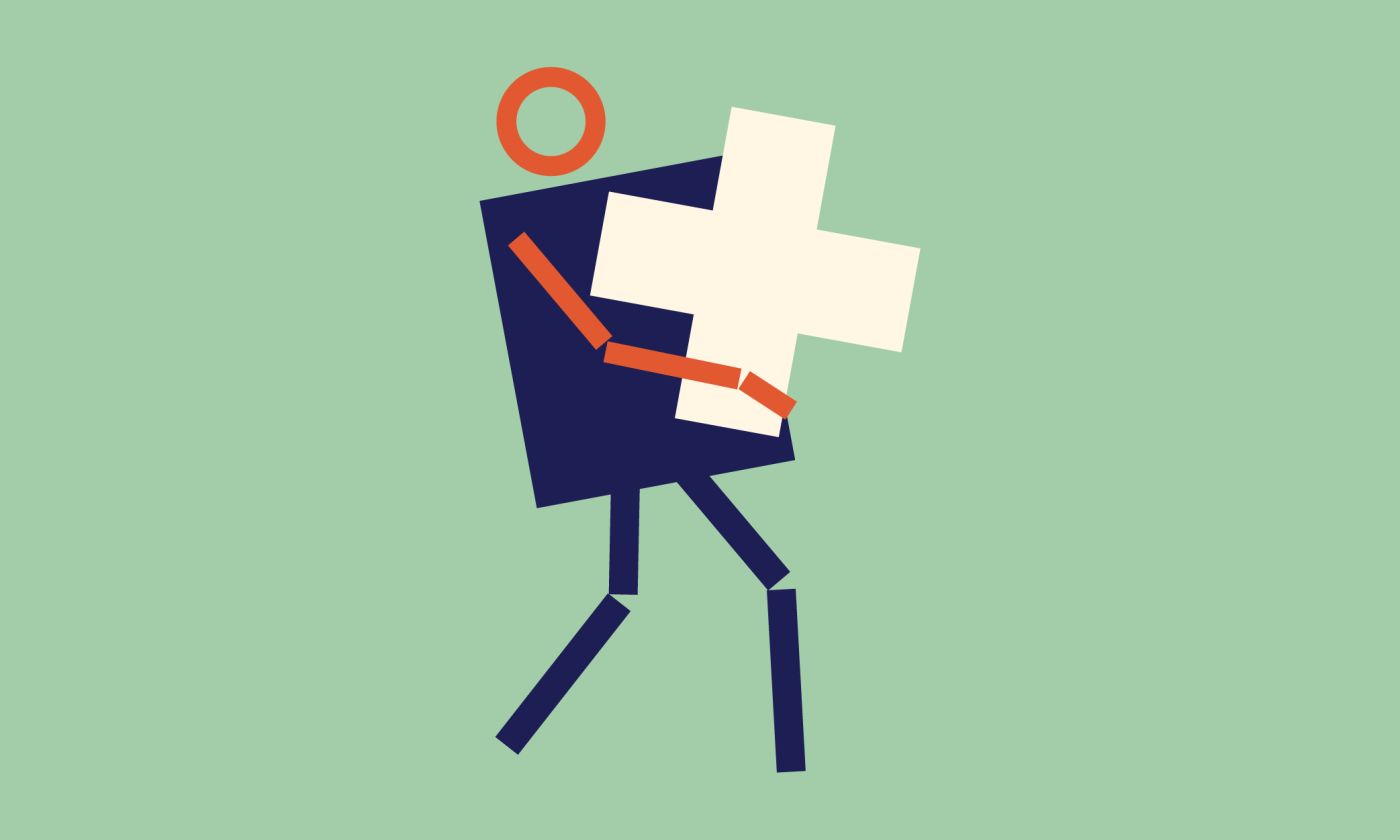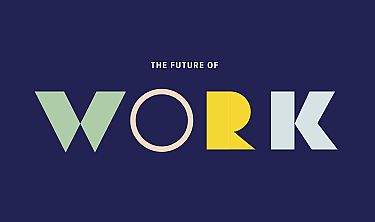There are a lot of perks to working on your own. You can control your schedule, decide where you’ll work, and choose the kinds of clients and projects you take on. But in the U.S. there’s one glaring downside to working outside the structure of a full-time employer: health insurance. When you work independently, finding and paying for health insurance for yourself and your family is a huge challenge.
Our health insurance system wasn’t designed for independent workers. The good news is that a lot of smart people are working on creative ways to change that. One of those people is Carisa Miklusak. She’s the co-founder of the on-demand job app tilr (pronounced “TILL-ERR”), and she’s passionate about bringing “portable benefits” to independents, like the people who find gigs on her app. Portable benefits are benefits that are linked to a worker, not to an employer. That means they go with you, even if you leave your current job.
Portable benefits are designed to empower independent workers, and give independents increased access to benefits like medical insurance, but also protections like paid leave, workers’ compensation, unemployment insurance, tax withholding, and tax-advantaged retirement savings. Insurance companies like Anthem are introducing portable benefits plans that are employer-sponsored, payroll-deducted benefits reward programs, but designed for contingent workers.
Here’s how to think about portable benefits, compared to traditional benefits options:
- With a typical employer-employee benefits package, the employer negotiates the benefits package and when the employee separates from the employer she no longer is able to be part of the employer-based program.
- With an exchange-based health program (or a broker program), the independent worker selects it herself and it follows her wherever she works as long as she pays the premium.
- With a portable benefits program, the platform negotiates the benefits, the contingent worker receives the benefits, and when she works at different companies, the benefits follow her.
I asked Carisa why portable benefits matter, and what independents can expect about the future of health insurance.
Why should we all care about the state of health insurance in our country?
Today's workforce is comprised of many categories of workers, and the way people work — or what category they belong to — is fluid, not static. Right now, people are working but have no access to health insurance or benefits. There’s no support, and they have to solve their health insurance problems on their own.
As the number of people entering the new workforce increases and the lack of portable benefits continues, we are growing the number of uncared-for workers in our country. That will eventually lead to a significant impact on productivity. It is unsustainable for workers and the families they support. It's also unsustainable for companies, which suffer from that deteriorated productivity, and it's unsustainable for our economy.
We need to define and bring to life a system that allows benefits to follow the person and sustain them throughout their career, not only when they are working for a specific company in a traditional W2 role.
There is a direct correlation between workers being healthy, and cared for, and their productivity. It’s basic human nature: When we know we are well cared for, have health insurance, a savings plan for the future, and access to training and development, we naturally perform with less anxiety. We can focus on doing a great job in the now.
You’re helping workers get portable benefits through tilr. How does that work?
We believe that everyone in the workforce should have the right to benefits like health insurance. We’ve taken the stance that serving up gig work is one thing, but creating a sustainable economic society where individuals are cared for is another thing. If you have one without the other, it will just lead to a dive in productivity.
So we created our own partnership model to give gig workers access to benefits. Tilr partners with firms that provide, or are building programs to provide, portable benefits to independent workers. Anthem Blue Cross Blue Shield and Honest Dollar are two examples. Through tilr's partnership with Anthem, tilr workers will have access to Anthem's first program designed for the gig economy. Workers can get individual health insurance policies, instead of a company policy. These are plans that are less expensive than the public exchange and designed to mirror the way gig workers work.
We also partner with Honest Dollar to help tilr workers save for retirement. They can save a portion of their income in a savings account that mirrors a mini 401(k).
We have plans to add to our benefits offerings. The latest thing we’re working on is a partnership with Cengage Learning, and we’re looking forward to bringing training and development benefits soon.
Tell us about your work lobbying the federal government to expand portable benefits.
The federal government is definitely looking at portable benefits. I spend time on the Hill working with senators and lobbying for the opportunity to explore portable benefits at the federal level.
The legislation that we are focused on supporting right now is a $20 million exploration bill, introduced by Mark Warner and supported by Todd Young, that encourages funding exploring how portable benefits can be supported. tilr works alongside other companies to support any initiatives associated with this bill. We also offer to act as a resource and an example in the creation of a sustainable portable benefit system.
There are also states that are exploring a marketplace model to empower access to portable benefits. It’s a long process, but I’m hoping that if a few states can roll this out and show success, we could push on the federal government a little bit.
Without a better system for health insurance, we're going to see the level of uncared for workers increase and as a result, company productivity decrease. Our labor system was built when Ford was built, but soon more than 50 percent of our workforce is going to be working in this way for at least a portion of their income. So we better figure out how to insure these people, and let them save for their future, and let them take care of their families.
The concept of portable benefits is a new one, and it’s an issue we’re watching closely at Indypendently. While tilr’s portable benefits program is designed for workers who use the tilr platform, the legislation mentioned above would bring portable benefits to independent workers more broadly. To learn more about portable benefits, I recommend checking out the Aspen Institute. It publishes resources for employers, independent workers, and anyone who’s interested in moving portable benefits forward.





